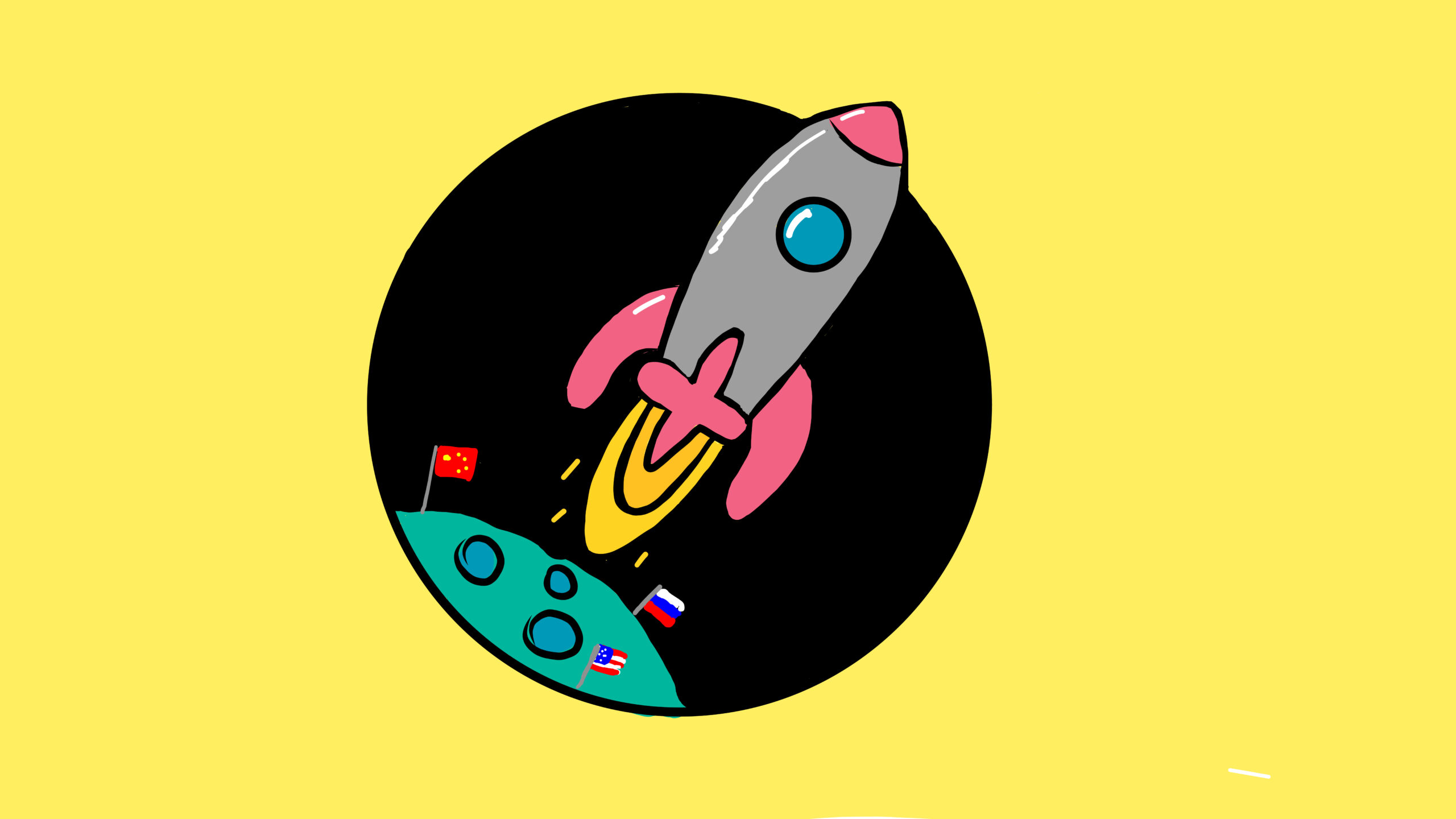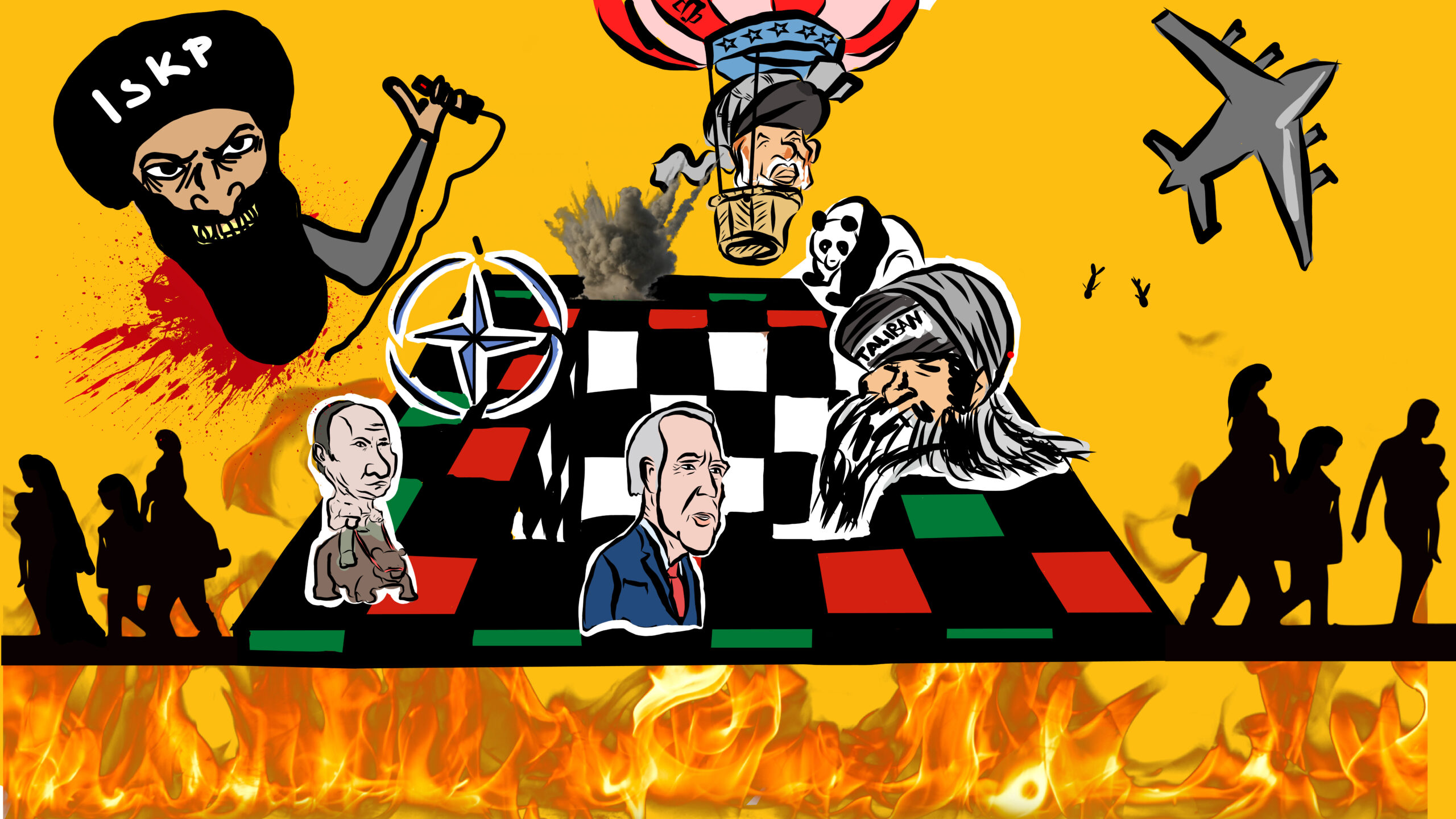This piece of paper was submitted to and earned appreciation by The NATO Strategic Communications Centre of Excellence (StratCom COE) in Riga that is a multinational organization, which researches, educates and operates in the field of Strategic Communications. They support civilian and military institutions of NATO and Allied nations to better understand and improve their StratCom capabilities. Their Call for Scenario enforces ideas of fictitious political-military scenario concepts to be played out in StratCom training exercises (such as a table-top exercise, or TTX).
This scenario was created on behalf of the Center for Security Analyses and Prevention (CBAP) in Czechia with Arta Haxhixhemajli‘s team.
Avant-Space War and the Politics of Conquering

Back in 2035, under the President’s vision herself, the Pentagon had secretly started the space warfare defense initiative called “the Athena project”. This project was designed to advance space defense technology with its first aim to attack the Russian satellite system governing Siberia’s resources and territory. With a tremendous amount of money invested, three years later, Siberia is now fully controlled by the U.S. government from outer space. This attack on the Russian satellite system caused quite a stir on the space warfare affairs among superpowers. However, with the help from the NATO Allies, the majority of international actors recognized Siberia as a state, and its resources belong to Washington.
Nevertheless, on one of the hottest early mornings of July 14, 2041, the heat waves brought along one of the most painful days in United States defense history. At 0300, everything in the U.S. military base in Siberia went quiet – the blackout took away electricity as well as all remote control gadgets malfunctioned, including both the U.S. communications system and the small yield missiles that defend Siberia’s territory.
General Jason was on the watch that night, he looked around with panic – the blackout should never hit this hard, at least not on one of the most advanced protection systems that have ever existed. With every passing minute, the threats expanded. From simply internal miscommunication to the missiles launched, nobody can be completely sure what these threatening events mean. General Jason assumed right away that this was an attack on Washington with a possible suspicion of Moscow. The next day the statements from the Department of Defense is published stating that Washington is furious about this incident and is now calling on Moscow to provide transparency and collaboration on the investigation.
From the Moscow narrative, it was a lot of work covering their cyber traits. They responded that Washington’s actions were unpredictable and untrusted. Now, Moscow controls the military base in Siberia from space and waits for the right diplomatic moment to claim its work, just like the U.S. did in 2035.
Moscow spent five years on a revenge mission against the U.S., aiming at just one goal – to get Siberia back; while completely losing track of another superpower with long-established interest in the same territory.
Meanwhile, another player, China, shows interest in developing and having leverage on space. The program called “Da Tien De Wang” (DTDW), translated to “the Emperor of the Sky”, has been developed. This space program is not a secret because China’s interest in Astro politics was never subtle to an international community. The DTDW program is famously known for its works on satellite communication in South and Southeast Asia. However, not a lot of people are aware that the DTDW is also China’s secret project on observing information on outta space and has been spying on all satellites for years.
On the night, when Moscow attacked the U.S. military base in Siberia, one of the satellites miscommunicated in the wrong direction and jeopardized the signals. This created cyber traits which were picked up by one of the DTDW satellites. The bottom line is that now China is currently holding significant evidence of Moscow’s cyberattack on the U.S.
While Moscow is avoiding Washington’s investigation and the situation is getting accelerated, Chinese Minister of Defense, Wu Yu Yuan, arrived at the Domodedovo airport and headed to President Sergey Petrov. This meeting was not the first time the President had heard about the loose cyber traits because it was already reported to him only a day after the attack. The only information that he was not aware of until now is that the whole situation is in the hands of Beijing.
They were having a “coffee” all day long together, and finally, Minister Wu left the President’s residence by settling one of the most historical deals that Beijing has ever made.
“If you let us have control of Siberia along with resources, it will open our way to Europe, and we will gain power through irreplaceable natural wealth. These signals that we have evidence of will be considered as random signals in the space that DTDW picks up all the time…”
Although it is an uneasy decision, Moscow has no other choice than to accept the offer because the cost of being directly exposed as the attacker would jeopardize the diplomatic moves made to take over Siberia. Moscow agreed to take the offer with a straightforward condition: Siberia should remain under the control of Moscow, and China will have access to natural resources as well as outsourced companies. They both signed the agreement and proceeded with the next steps towards victory.
After six months of deep investigation, the Pentagon received coding messages from “the eastern” satellite suggesting evidence regarding the attack. Thinking it might be one of its Allies, the Pentagon cracked the code and realized that messages are from Minister Wu with 10 seconds length of signal traits suggesting the movement of Moscow cyber traits navigated towards the U.S. satellites governing Siberia.
Washington set up a secret meeting at the Pentagon aiming to negotiate with Beijing. However, Beijing once again came with its offer – this time asking for Washington to exchange on sharing the hypersonic weapons technology that the Pentagon is developing and have access to natural resources.
Reluctantly, the President of the United States, Anna Herris, agreed with China to get back its satellite and regain control over Siberia as Russia has managed to take down its communication.
However, this situation has reached far beyond the President’s imagination. The attack on the U.S. satellites was never solely about Washington. NATO knew about this very particular deal that President Petrov made with Beijing and determined that the U.S. will use the evidence to condemn Moscow.
“Soft power must be used not only against Moscow but also against Beijing” the conversation on the teleconference between the Secretary-General of NATO, Calvin Hannsberg, and the President of the United States echoed.
“This is the chance to establish rules of the game, to win this board. We need space resources, and Washington should know that better than anyone else” said the Secretary-General of NATO with a persuasive tone.
“But there will be war, a space war will not look pretty if we lose” the President’s voice responded.
“We will win!” The end of the line said calmly before hanging up and leaving the President of the U.S. with nothing but silence.
A year later, after Washington released the evidence received from Beijing, the cyberwar with Moscow began. Moscow rejected the evidence, which the U.S. released by saying that it was framed by Washington in order to establish its legitimacy to attack. Based on the evidence, the United States accused Russia of not providing transparency to NATO Allies as well as for countless cyber attacks aimed to start a space war.
According to the Secretary-General, Article 5 has been violated as an attack on one Ally is considered as an attack against all Allies even in space. However, the United States did not inform NATO about its secret meeting with Beijing. As a result, the United States was not transparent with NATO Allies about its moves because Washington tried to protect its own interest and this attitude gave China and Russia leverage to challenge the security. The secret meeting between Washington and Beijing remained confidential as it could fuel even more tension among Allies.
In the upcoming years, the Pentagon found numerous traits of cyber attack from space satellites, and although it cannot trace it back to the areas where the attacks came from, it is without a doubt to Washington that Moscow is responsible.
“We have them where we want” whispered the Chinese President to himself. “Yes, sir, we won,” replied Minister Wu.




